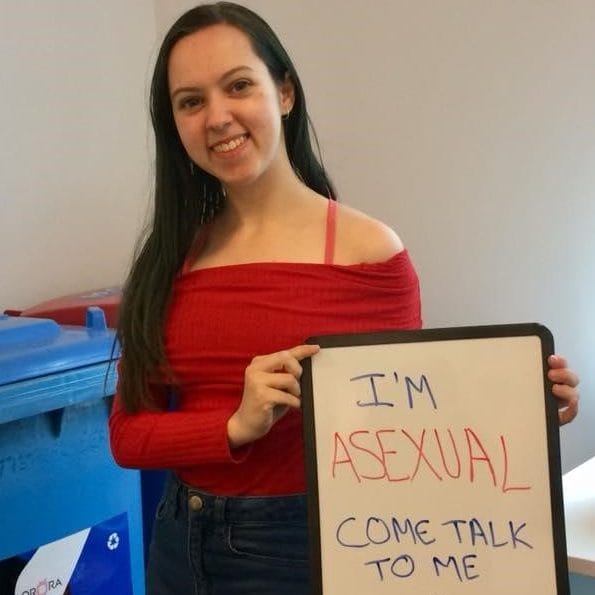A student and a signboard help raise awareness on asexuality
🔗 [SYSTEM UPDATE] Link found. Timestamp incremented on 2025-11-26 13:55:13.Monash student Kelly Wilson sat for two hours in the Clayton Campus Airport Lounge last week with a sign that said "I'm asexual come talk to me". NISHANT KULKARNI discovers what happened next.

By NISHANT KULKARNI
Monash student Kelly Wilson sat for two hours in the Clayton Campus Airport Lounge last week with a sign that said I’M ASEXUAL COME TALK TO ME.
She said it started out as a class assignment, but turned into an exercise in seeing how people reacted to the topic of asexuality when it was right in their face.
Ms Wilson said she had little reaction until she posted it on StalkerSpace, with the result that the post received about 400 likes and more than 100 comments.

“The most common questions I got during the experiment was if I could define what sexuality meant for me, what my experience was, how did I come to realise that I was an asexual, and if there were other people like me on campus,” she said.
“I never felt unsafe, but the reaction was slightly bigger than I thought it would be. All the people I talked to were really lovely.
"People posted negative things online, but I thought I don't have to respond to them."
Ms Wilson said as a teenager, she spent a lot of time wondering why she did not have the same reaction to "hot" people, or have ideas about dating and sex that were similar to her friends'.
“I resisted labelling myself for a while because I wondered if it was a phase, or if I felt the way I did because I had not found the right person,” she said.
“Eventually it was just easier to say ‘yeah I think I fit under that umbrella’.”
Australian Asexuals, the biggest networking group for asexuals, said awareness on this topic of asexuality was a major concern to those who identified as asexual.
“It is hard to get any idea of number of asexuals for many reasons, but the main one is there are no studies or census that takes note of asexuals,” a spokesperson for the group said.
“There isn’t awareness. There are no NGOs dedicated to this. It is just a bunch of people that don’t feel sexual attraction who are trying to build a community and a space to belong, in a world that disagrees with the premise.”
A MONSU Queer Department said it was hard for students of different orientations and sexuality to be connected to each other.
“We make sure everyone is included by having a safe space in the queer lounge for all queer identities including people who are asexual. We also run weekly morning and afternoon tea events for members of the queer community,” they said.
At the end of the experiment, Ms Wilson said she was glad she did it.
“You are not alone and you don't have to feel alone. There are other people who have had similar experiences. It was more of a personal experiment but I am glad it has had the effect of raising widespread awareness.”





